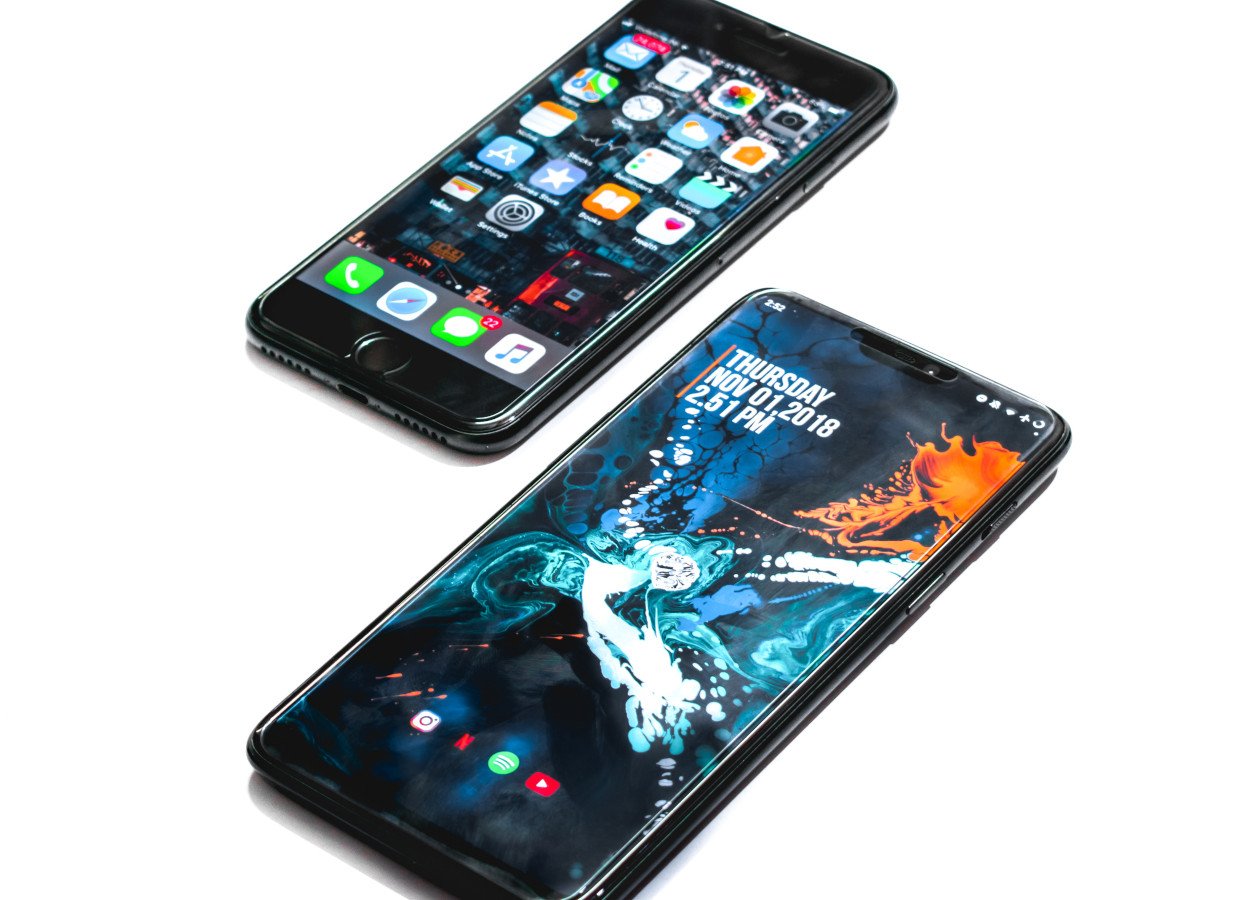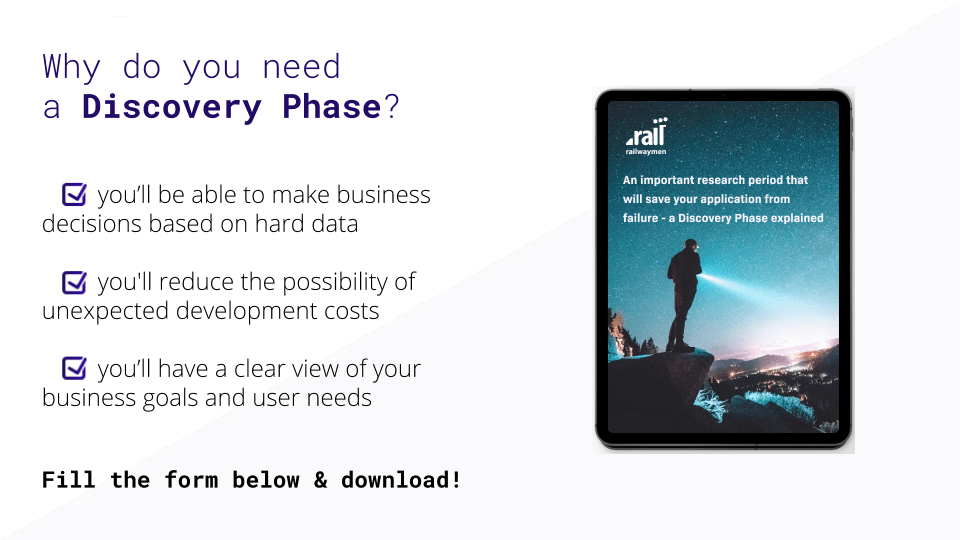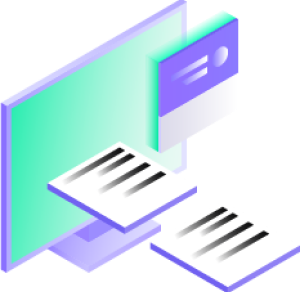Today I’m going to talk about Mobile Development Trends… Yes! I know, as this is one of the most popular topics I’m sure you will find a lot of sources to read about it but hold on and stay with me because I’m not going to talk about any statistics. I’m going to share with you the interesting facts from my own investigations and experience as a Senior Mobile Developer in a software house. But before talking about “Mobile Development Trends” let’s focus on Mobile development itself. Why has it become so popular?

Can you imagine at least one day without your smartphone? There was a time when we were using our phones to answer calls, read messages, check mail etc, anytime and anywhere. But nowadays, smartphones are no longer just simple mobile phones but more like small computers we gather everywhere, with our favorite applications inside. Those apps allows us to keep our daily activities like communication, shopping, map & navigation, banking, sport, food delivery etc in order and without them - we feel w bit lost.
There are so many apps already available on the market but because our needs are constantly growing, new ones appear every day. So we can say with a full confidence, that Mobile App Development becomes more and more popular. Taking into consideration this fact business owners and service providers always need to have mobile applications for their businesses.
And we at Railwaymen are one of the IT companies that provide solutions relevant to high standards for the clients and help them to organize their business in the Mobile platform as well. You can see the examples of our mobile project here, just tick the box "mobile" in the upper right corner.
Going back to our main topic I would like to mention in my opinion the most interesting Mobile Development Trends for 2020 and talk a bit about them from my own perspective.
Table of Contents:
1. Cross-Platform Mobile App Development.
3. Mobile payments and mobile wallets.
#1 Cross-Platform Mobile App Development
On a way of choosing the Best Mobile Application Framework

When we need to start developing an app it can be difficult to choose the proper framework from all available options for a mobile app framework. But choosing a framework is not only an issue that we have, but there are also factors which are impacting our app as well such as:
- How much time do we have to push the app to production?
- What is our development costs?
- What is our maintenance costs?
- Do we have enough resources (engineers) working on it?
- What features do we need?
- the list can be continued.
Let’s compare the Native Apps approach with the Cross-Platform approach talking about each separately.
Let’s start from Native apps
The benefits of using first-party native apps is that we get a native app UI/UX. Every UI component looks specific to its platform, which means on Android, for instance, the app buttons will look specific to the Android platform, for IOS apps the same buttons will look specifically for the IOS platform. But the downside is that the development process is a little slower because we have to create things twice. After all, Apple and Google have different programming languages and toolsets and we can’t use the same code between our apps. So we will have 2 different codebases, 2 different engineers which will increase development cost, maintenance cost and also it will slow down the process to push the app to the market.
Yet - in some cases Native Apps are better choice, as Airbnb has painfully found out, as they had to rewrite their cross-platform app into two separate native ones.
You can read more about it & other Swift vs React Native related things here!
Cross-platform native apps
These frameworks allow us to create an entirely native application that gives access to every single Android and IOS API but they allow us to write an app in the same code base so we can share code between Android and IOS apps.
The cross-platform native apps have at least 2 very important advantages which are:
- Code Reusability - single code can be used for multiple platforms. So, it’s half the effort and time as compared to native app development
- Cost-Effectiveness - it offers a relatively lower cost of development as compared to native app development since the code is written once and used for both (or more) platforms.
What about UI components? Unfortunately, they will look very similar in both platforms.
Here are top Cross-Platform App Frameworks and the app lists made in those frameworks:
- Xamarin - Picturex, Alaska Airlines, Insightly CRM, The World Bank, Storyo, BBC Good Food
- React Native - Instagram, Facebook, Facebook Ads, Bloomberg, Pinterest, Skype, Airbnb
- Flutter - Alibaba, Google, Google Ads, Tencent
Before making a final decision please get in contact with qualified IT companies which will provide you advice based on your requirements and help to choose a proper framework. Railwaymen is always ready to give such consultation for their clients, and in case you already have your strong decision related to the preferred framework, it will help you to develop the desired application.
Besides advising which framework is the best in your case, would you like to receive a whole app idea verification, with software requirements documentation, market research, monetisation strategy and Minimum Viable Product Background included? Download our Discovery Phase ebook & order this completely separate consulting service of ours - it doesn't entitle you to start the development part in any cause!

2. Instant Apps

One of the cool features that Google provides to its customers is the possibility to try an application before unnecessarily installing it. Google presented the Instant Apps at 2018’s Google I/O and demonstrated how it works in the Google Play market.
How does Instant Apps work?
Google Play Instant enables native apps and games to launch on devices running Android 5.0 (API level 21) or higher without being installed. I think this approach is one of Google's awesome solutions for its users because now we can just click on the "Try Now" button and test applications to be sure whether we want to install it in our devices or not. The process is very fast because you don’t have to wait until the app will be downloaded and installed on your device to start trying it out. Just one click on the “Try Now” button and you can immediately launch it and share with your friends!
What is the benefit of Instant Apps?
As the gaming industry development companies like King and Hothead example shows - Instant App are a great way to improve your users acquisition rates! The number of players engaged in their games has risen significantly since the users could give their games a go, without the necessity of installing them on their device. It would be nice to see in Google Play Store more companies integrating this approach.
#3 Mobile Payments And Mobile Wallets

Another most popular trend is Mobile Payments & Mobile Wallets.
What are mobile payments?
Mobile payments are a life-changing innovation. Actually, it is a trusted digital transaction taking place on our mobile devices which is increasing integrability between traditional payment networks and mobile web-based technology.
Mobile payment solutions are becoming an important opportunity for the financial world and financial industry because they are trusted transactions method, that can process directly from our mobile devices and they don't require lots of time to be finished.
How do mobile payments work?
Instead of using a credit card (physically) or cash, the customer has to send payment requests to his/her service provider and then, the customer's credit card which will be charged for the purchase. If merchants still support only cash registers then the mobile payment can not be accepted.
The primitive example of mobile payment is, for example, if in any of the online shop payment sections you can find an opportunity to pay by entering your credit card details. Nowadays almost every bank has also adopted to integrate mobile payment technologies for their customers to pay directly from their bank account.
What is a Mobile Wallet?
It is a virtual wallet that stores payment debit or credit card information on a mobile device. For having a mobile wallet in your smartphone you need to install an app and input payment information, and the user can do it manually or by scanning the card information.
How does Mobile Wallet work?
One common example is holding a phone near the POS when users want to make a payment in the store. In this case, the wallet is using NFC technology to make communication between the user's phone and POS terminal.

Now we want to share it with you!
Mobile Payments can be also used through an another technology which is QR code scanning. Users can provide such a QR code that can be scanned by merchants. It depends on what kind of payment method technology is integrated into a certain mobile wallet.
What are the most popular mobile wallet apps?
Apple Pay, Google Pay, Samsung Pay, PayPal One Touch, Venmo
#4 5G Network

There are a lot of talks and myths about 5G development and it seems like they are becoming true and a new generation network starts to spread all over the world.
But what is a 5G?
5G is the 5th generation mobile network which is a new global wireless standard after 1G, 2G, 3G, and 4G networks. It is designed to support 100x times increased traffic capacity and network efficiency, and with an extended capacity to enable next-generation user experiences, implement new deployment models and deliver new services.
5G speeds at launch can be up to 1 Gbps, but will increase to up to 2 Gbps, compared with 4G which has download speed around 3 to 5Mbps. It's just awesome, but you need 5G device to get that speed!
What kind of 5G supported mobile phone devices are in the market?
Android phone manufacturers are commercializing 5G phones and we have already in the market some of them like Samsung Galaxy S10, OnePlus7 - OnePlus 7T, Huawei Mate X, Xiaomi Mi Mix 3, Motorola Z3, LG V50 THINQ. According to an announcement in global news Apple promised to release iPhone 5G in September 2020.
5G impacts industries like:
- digital media - will extend virtual reality
- navigation and transport - make traffic safer and more energy efficient
- robotics and automation - in hospitals, collaborative robots can guide patients or deliver medicines, and be managed centrally as a fleet
- communications - new multimedia consumer experiences at massive scale
So with high speeds, superior reliability, and negligible latency, 5G will expand the mobile ecosystem into a new reality.
#5 Artificial Intelligence

This is one of the most popular trends in mobile programming.
What is AI?
It is the science of making machine smarts, using algorithms to relay computers to solve the problems which used to be solved by humans. In other words, AI is the simulation of human intelligence processes by machines, especially computer systems. We need to understand that the AI will simply improve products and services, not replace the humans that use them.
Many companies experiment with AI for various business purposes and provide AI components as well as a Service (AIaaS) platform. Popular AI cloud offerings include Amazon AI services, IBM Watson Assistant, Microsoft Cognitive Services, and Google AI services.
Components of AI
Applications:
- Image Recognition
- Speech Recognition
- ChatBots
- Natural language generation
Type of models:
- Deep learning
- Machine learning
- Neutral Networks
Software/hardware for training and running models:
- GPU’s
- Parallel processing tools
- Cloud Data Storage and compute platforms
Program languages to build models:
- Java
- Python
- C
AI applications examples
We can find AI technology used almost in every industry, for example:
- Robotics - the robots are created to complete the task which human cannot do. For instance, to put out a fire in oil wells where it is a very dangerous job for human, robots can be useful.
- Websites - to provide immediate service to customers, website owners are often incorporating chatbots.
- The car industry - to create self-driving cars which are using a combination of computer vision and image recognition, to avoid unexpected obstructions, such as pedestrians in an unmarked places.
- Healthcare - here also machine learning is very helpful to make better and faster diagnosis than humans can do. One of the best-known healthcare technologies is IBM Watson, which is used also by Wall Street to perform trading
- Mobile Development - many applications are using AI, here are the most popular ones Google Lens, Photo Sherlock, Google Assistant, Google Translator, Siri, Cortana, Alexa, FB, Babbel etc.
Conclusion
When it comes to mobile app development trends - most of them are the same in the last few years. Yet they are constantly developing and becoming more and more popular with each day! Taking as an example mobile payments - in September of 2018 Apple Pay had 292 Million users worldwide and and September 2019, that number grew to an impressive 441 Million.
So if you are thinking about making your own mobile app - make sure that you follow only the trends that are applicable in your specific case. When it comes to development iself - there is one big decision you need to take: should I outsource my mobile app project to a freelancer or a software house? We've got you covered, with the article below telling, which approach will be best in YOUR case!
Freelancer vs Software House - Which One Will Be Better in My Case?






